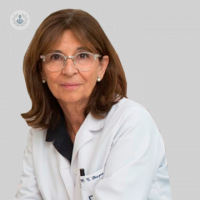First consultation Assisted Reproduction
Written by:
 When to go first specialist
When to go first specialist
Classically, pairs below 35 years is recommended unprotected sex for a year before starting the study of infertility. However, this approach is not rigid and delay motherhood we find patients who should not and can wait because they could jeopardize fertility. Really consultation with the specialist in assisted reproduction should be done when the need arises, when the couple begins to worry and especially if the woman is over 35, irregular cycles, history of pelvic surgery, hereditary diseases ...
What questions does the specialist?
To begin we must develop a complete medical history in which data corresponding family and the two partners will collect and review medical and surgical history.
Ask about habits of the two partners: snuff, alcohol or toxic that can affect fertility, and environmental or occupational factors.
Check that there is sufficient sexual frequency for pregnancy, contraception previous value, possible earlier, together or with other couples pregnancies.
What tests indicate?
Entry, a physical and gynecological examination to check the normal reproductive tract.
First tests of assisted reproduction in women:
ULTRASOUND GYNECOLOGICAL: Check that no uterine tumors, fibroids, or intrauterine polyps, or malformations such as double uterus or septum, which both ovaries look normal and have no cysts or tumors of any other nature that hamper normal operation. ovarian reserve is also to meet the expectation values of fertility in women. It is important to do it in the first phase of the cycle, in the second or third day of menstruation.
Blood test: Check the correct balance in sex hormones, which leads us on a proper ovulation and gives us an idea about the expectation of fertility in women. As ultrasound should be performed in the early days of the cycle. It is interesting to carry out a study of sexually transmitted diseases that sometimes can affect the proper functioning of the tubes.
Hysterosalpingography is carried out to test the normality of the tubes, this should always be done after the male study. Is the introduction of a dye into the uterus to be released through the fallopian tubes and abdominal cavity goes on, all controlled by radiology allow us to see the normality of the tubes. It must take place in the first half of the cycle, after menstruation and before ovulation.
There are other tests that help us develop a diagnostic accuracy but requested a second time and if considered necessary: karyotype, Laparoscopy ...
First tests of assisted reproduction in humans:
SEMINOGRAM: Consists deliver a semen sample to rate quality: No. of sperm, motility and shape. Dismiss infections and measure certain parameters of the sample. If alteration is passed on to man a visit with the andrologist, who is the specialist in male reproduction.
How long it takes to get a diagnosis?
The basic sterility study is performed in a cycle of women and seminogram only takes a few days to learn, depending on the results of this first phase, it is possible for a second month is required to perform additional tests.
We could say that between one and two months would be sufficient to reach a diagnosis.
We must not forget that 10-15% of cases do not get to be able to give a diagnosis Security, because sterility is also linked to age factor that is bringing us a low fertility rate without an specific pathology.


